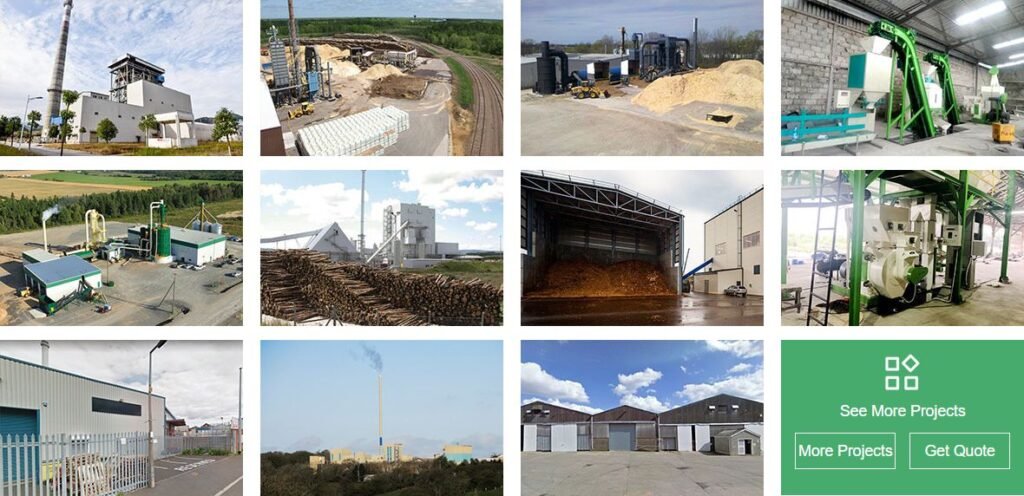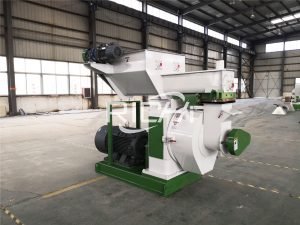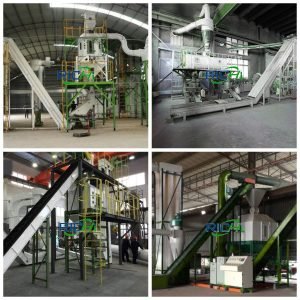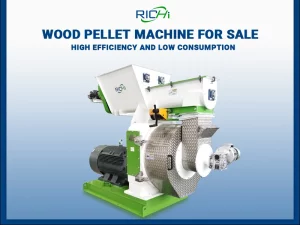As the global shift towards renewable energy gains momentum, Germany has emerged as a pioneer in adopting biomass heating solutions, with wood pellets at the forefront. These pellets, made from compressed woody biomass, are pivotal in Germany’s sustainable heating strategy, driven by a combination of government incentives, rising fossil fuel costs, and environmental awareness.
The Rise of Wood Pellet Heating in Germany
Germany’s embrace of wood pellet heating is bolstered by supportive policies like the Renewable Energies Heat Act (EEWärmeG) and the Market Incentive Program (MAP). These initiatives incentivize the use of renewable energy sources, spurring demand for wood pellets. Consequently, Germany has become a major producer and consumer of wood pellets in Europe, with an annual production capacity exceeding 3.2 million tons.
Related post: 2-2.5 Tons/hour Wood Pellet Plant in Germany
Key Considerations When Purchasing Wood Pelletizers in Germany
When exploring wood pelletizers for sale in Germany, several factors are crucial to consider:
- Production Capacity: Determine the required capacity based on anticipated pellet demand. German manufacturers offer a spectrum of pelletizers, from small-scale units for residential use to industrial systems capable of producing thousands of tons annually.
- Feedstock Compatibility: Evaluate pelletizer compatibility with specific biomass types (e.g., sawdust, wood chips). Different machines excel with various materials, influencing processing efficiency and pellet quality.
- Energy Efficiency and Sustainability: Prioritize pelletizers with energy-efficient designs, incorporating features like waste heat recovery and variable frequency drives. These reduce operational costs and environmental impact.
- Automation and Control Systems: Assess systems such as PLCs and HMIs for enhancing process efficiency and quality control. Remote monitoring capabilities ensure operational oversight.
- Maintenance and Support: Choose manufacturers renowned for robust after-sales support, spare parts availability, and technical assistance, crucial for machine longevity and uptime.
- Regulatory Compliance: Ensure adherence to German and European standards for emissions, safety, and environmental protection, vital for regulatory approval and operational legality.
Related post:https://www.pellet-richi.com/wood-pellet-production-line/wood-pellet-production-line-in-france.html
Sourcing Wood Pelletizers in Germany
Germany hosts leading manufacturers and suppliers of wood pelletizers:
- Direct Manufacturer Contacts: Engage directly with manufacturers like KAHL Group, MÜNCH-Edelstahl GmbH, and CPM Europe GmbH for detailed product information and customization options.
- Industry Events and Trade Shows: Attend major events such as LIGNA, EuroTier, and IFAT to explore cutting-edge pelletizer models and network with industry experts.
- Online Platforms: Utilize industrial equipment marketplaces and auctions for new and used pelletizers, providing broad access to diverse machine options.
- Equipment Brokers: Partner with reputable brokers specializing in industrial machinery procurement, leveraging their expertise for efficient acquisition.
The Impact of Wood Pelletizers on Germany’s Sustainable Goals
Wood pelletizers play a pivotal role in Germany’s pursuit of sustainable heating solutions:
- Reduced Fossil Fuel Dependence: Wood pellets offer a renewable alternative to imported fossil fuels, enhancing energy security and reducing reliance on non-renewable resources.
- Emission Reductions: Wood pellet combustion is carbon-neutral, aligning with Germany’s emission reduction targets by offsetting carbon dioxide through biomass absorption.
- Economic Growth: The wood pellet industry fosters economic opportunities and job creation, particularly in rural areas, supporting inclusive economic development.
- Resource Efficiency: Pelletizers convert wood waste into valuable energy sources, enhancing resource efficiency and promoting sustainable forestry and waste management practices.
Conclusion
Germany’s leadership in sustainable energy is bolstered by robust wood pellet heating solutions, underpinned by advanced pelletizer technologies. By investing in efficient, compliant pelletizers, businesses and energy providers can contribute to Germany’s renewable energy transition while fostering economic growth and environmental stewardship.
This dynamic market presents opportunities for innovation and collaboration, positioning wood pelletizers as integral to Germany’s sustainable heating future.



